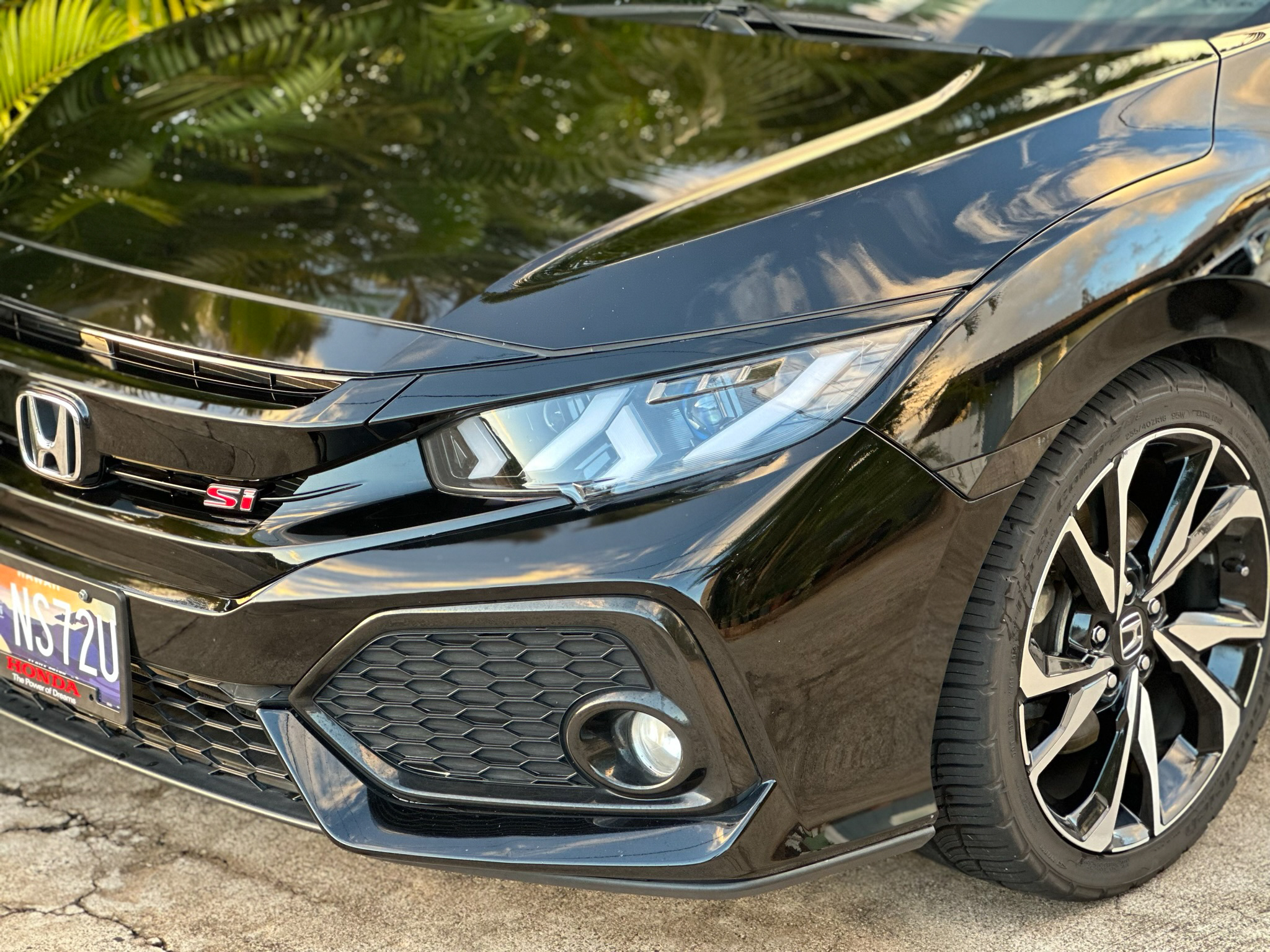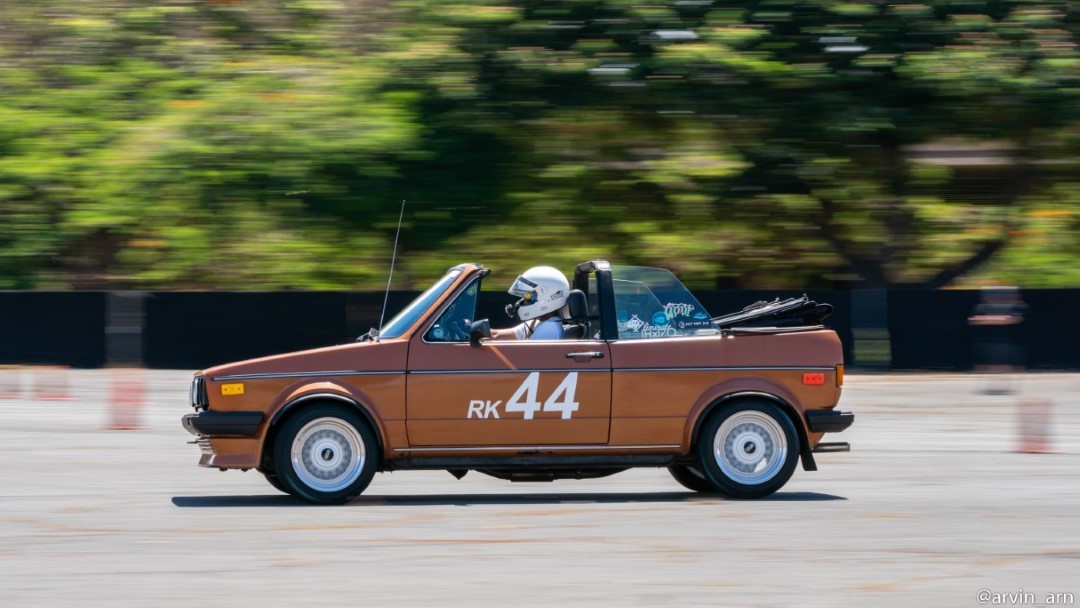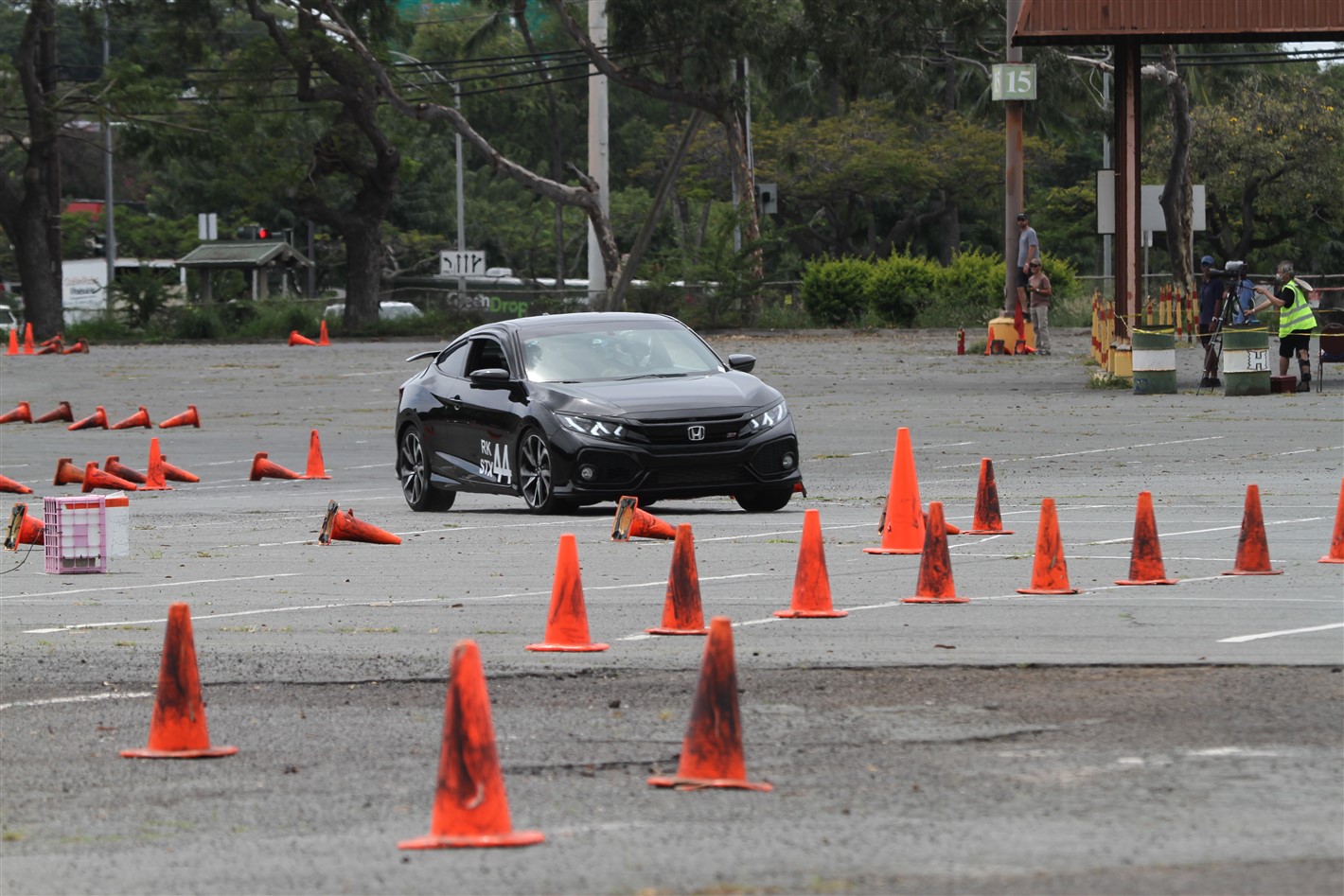Be faster and don't spend more money
Written on February 6th, 2023 by Joshua Domingo
I enjoy spending money to solve my problems but spending money won’t make me faster. I’m new to racing and I don’t have a good baseline of my limit in autocross, so instead of going down the spending rabbit hole, let’s figure out how I can be faster by racing on a budget.
Spending money to solve my problems
 {: width=”100%” }
{: width=”100%” }
It would be nice to be agnostic of price and not worry about the cost of parts and maintenance. But in the real world, it’s a challenge we have to address. New and shiny parts would make driving easier, but it won’t necessarily make me a fast driver.
| Price | Parts to be “faster” ($4,500) | Data analysis to be “faster” ($440-1,300) | Most likely make me faster ($31) |
|---|---|---|---|
| $1500 | ARK Performance DT-S Exhaust | ||
| $200-500 per wheel | Lightweight wheels, anything lighter than stock wheels at 27lbs. | ||
| $150x4 | 200TW Tires | ||
| $150-1000 | Racing Telemetry, AiM Solo 2, Apex Pro Gen II, etc. | ||
| $10-20 | Racing App | ||
| $130 | OBDLink Bluetooth OBD II reader | ||
| $150 | 10Hz minimum GPS (possibly integrated with telemetry readers above) | ||
| $0 | 10-20 hours of dedicated FWD practice on AC | ||
| $30 | Flush brakes + couple hours | ||
| $0 | Playing DiRT Rally 2 with FWD | ||
| $1 | Books: You Suck at Racing, Optimum Drive |
Parts: $4,500+ to maybe be faster
Data Analytics: I’ll probably spend closer to $1,000 for a setup
Actually faster: $31
Defining a Fast Driver
Reading through Optimum Drive: The Road Map to Driving Greatness, the author Paul F. Gerrard brought up an interesting point, what is a fast driver? There are a lot of definitions of the qualities of a great driver: good tire management, one that brakes later and on the gas better, one that balances a car, but to the layman that doesn’t really define a great driver.
The book hits it from many directions, but I wasn’t quite satisfied with the takeaway, that a great driver is one that drives with a superhuman level of precision.
In our everyday lives, a great driver inspires confidence and safety. The passengers and others on the road know where they are going and will do it without incident.
But in the professional world, a great driver is the fastest and most effortless driver on the track. Doing just enough to move the car where it needs to go. Perfectly efficient, balancing on the edge of danger and speed.
Professional athletes alike are skilled in their own disciplines, and the ones at the top 1% all can perform relatively close. But the very best make it look easy, they are the gold standard of perfection that we compare everyone to. It is subjective, in the eyes of the beholder, and to the beholder, they see the performance of the impossible.
At our local track, the great drivers were the ones that made the course look easy and simple.
How can we be great drivers?
Drive more, drive faster.
I am at the bottom of the pyramid, just starting to get into precision driving so I just need to get more experience behind the wheel. Once I really get a feel for the limits of my car and the limits of my driving skills are, then I can start to think seriously about my next move.
In the past, I’ve distracted myself before with “I need data to grow! I need more information!” This goes with music, running, canoe paddling, swimming, League of Legends, etc… but data never solved my issue of non-performance. I needed more practice. I never reached that tier where we needed the data to squeeze in just a bit more performance. Amateur athletes lack the basics to perform and that’s what will always hold them back. It was always a battle between not enough talent and not enough information. When the talent is there, that’s when we can start to look at the data, but if I’m just starting out, git gud kid.
So, my driving problems? Hard to say, let’s just keep driving!
Why are you doing this again?
If you’ve read my other post on SCCA pre-season prep, I’m racing because this is so damn fun.
Have you ever been permitted to just fucking send it? It was the most liberating thing in the world. Go crazy. Go stupid. Do whatever you want. Enabled and free.
What’s the budget going to be like then, stupid?
Mind you, I am REALLY, REALLY fighting the urge to buy things. I am not so different from you guys. I will buy useless shit to fuel my hobbies. But I’m trying to resist the urge and justify saving my money.
Racing on a budget sounds stupid, to nickel and dime the most expensive sports industry in the world sounds ridiculous. But I’m not an international racing division, I’m racing with the homies in town that want to feel better than other people.
There’s no such thing as budget racing
We’ll define budget racing as something a college student could afford. Thinking of a “20-hour part-time job near minimum wage” kind of money. Shitty!
Subjective, I know. Defining this a bit more, let’s bring up the three categories again:
| Parts | Data | Training (Free) |
|---|---|---|
| $0. Maintenance items only, strictly from OEM. | $160 XGPS160 10Hz GPS $20 1 paid app like RaceChrono Pro, Track Addict, or Harry’s Lap Time. $20 Decent phone mount for video feedback $140 OBDLink MX+ OBD2 Bluetooth Scanner |
Assetto Corsa Autocross courses |
That comes out to about $340 to get on a training special to improve my novice autocross days. Let’s say I didn’t have a simulation rig to practice on, we’ll add on another $320 ($300 for Logitech rig and $20 for AC). With my previous Starbucks budget of $800 a month, that’ll take 3-5 months depending on how aggressive I’m saving.
In 2014 when it took me about 8 months to save for a $1200 camera and I still use it to this day. If I was racing back then, saving that money would be no problem.
Remember, it’s a hobby.
Don’t let this consume you. It’s more of a reminder for myself than for anyone else.
I have gone crazy spending time before now that I’m an adult child with money and time to spend on other things, but this time is different, I swear! Call it maturity or call it “yeah, it’s time to save money now” guilt, I’m trying my best to not buy too many things. Thankfully, I already have a racing rig and Assetto Corsa, the remaining things I would want are the GPS and an app. I have my phone to record video and my phone mount isn’t the best, but it works.
What’s the plan chief
Pole position in rookie class and a top 10 PAX time. I am competitive but also I know the difference between the top 10 and the top 3 is not a linear slope. The higher we reach, it’ll seem like a further step from the last. I know the goal is lofty and over my head, but I don’t want to settle. I expect a lot from myself and I’ll get there somehow.
From the last race here’s a few numbers:
- Fastest RAW time: 36.467 (-6.987)
- 10th fastest RAW time: 38.627 (-4.827)
- Fastest Rookie RAW: 38.884 (-4.57)
- 2nd Fastest: 39.020 (-4.434)
- 3rd Fastest: 40.398 (-1.514)
- …
- 63rd RAW, My personal best: 43.454 (+4.57)
One second faster.
I’m talking almost 5 seconds of improvement, which is close to 12% faster. That’s A LOT to ask for. Again, the margins and difficulty are not linear the higher we go. To be faster, we’ll start with one second. One second faster than the next driver. I didn’t plan on going this in-depth on training, but I think the edge and adrenaline rush has taken me, haha.
Training Plan Rules
- No new parts (barring maintenance items)
- Budget telemetry
- Budget simulation training
Simulator Training
- Weekly, 2 hours of skidpad training to practice entry, exit, and yaw with trail-braking
- NA Golf 2 defaults on Brands Hatch course
- Taking an instructor at least once per SCCA race
- Core and neck training emphasis
Getting feedback
- SCCA instructors
- Asking the guys faster than me in non-performance cars how to get faster
- Asking the other Civic guys at SCCA Hawaii
- Asking the fastest drivers to drive my car
Summary - It’s a race, but also not, but it is!
There is nothing super crazy about taking 1st in rookie class but I will absolutely want to aim for it. The top guys from race #1 were way faster than I could have gone. I’m not trying to beat the next fastest driver, I want to beat one of those guys. They have years and years of experience over me but this is where I can start. One second faster and that’s 7th place in Rookies.
- Going Faster! Mastering the Art of Race Driving – Basically the textbook from the Skip Barber school. Nuff said
- Ultimate Speed Secrets – It’s one of the best book on performance driving. I’ve read it cover to cover several times. Get the kindle version so you can read it wherever you are.
- Optimum Drive – My latest favorite driving book and the best thing you can listen to while driving to work. That’s right, it’s available as an audio book.
- Tire Pressure Gauge – Everyone needs a high quality tire pressure gauge. The simple analog ones from Joes Racing and Longacre are excellent.
-
Brake Bias Adjuster – One of the cheapest and most educational performance modifications you can make for your car is to install a prop valve. They don’t cost much but installing could be expensive if you have someone else do it.
- Bluetooth GPS Receiver – Your phone can be used as a lap timer, but with 1 Hz GPS updates, it’s not accurate enough for comparing telemetry data between runs or between drivers. With a 10 Hz antenna, you’ll get acceptable performance.
- I could go the budget route but overall I’d be spending closer to $1000 if I get a cheap and expensive unit. So maybe I’ll just save for the expensive one AND be able to sell it after.
- XGPS 160 - $200
- AiM Solo 2 used $500-700

